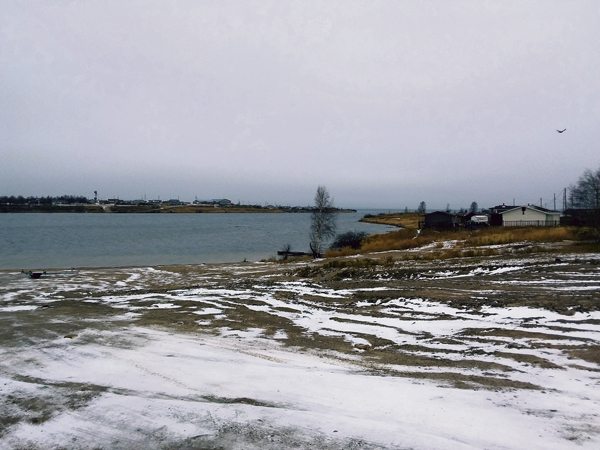Chief Bart Tsannie of Hatchet Lake Denesuline First Nation,Indigenous Services Minister Marc Miller, and Minister Greg Ottenbreit, Saskatchewan Ministry of Highways and Infrastructure, announced that construction of a $6.750-million seasonal road, joining Wollaston Lake and Hatchet Lake Denesuline First Nation to Highway 905, was currently underway
“This is tremendous news for our community and we greatly welcome to see both levels of government invest the dollars into this important infrastructure project,” said Tsannie.
“Without a seasonal road, our community has always been heavily reliant on-air transportation for freight and passengers where groceries and supplies can only flown in (sic) to the retailers and many of our people need to travel down south for health support. The economic benefits it will bring to our community will also be a welcomed bonus.”
Both levels of government have agreed to contribute funding to the project, with ISC contributing $6.5million over a two-year period, and the province contributing $250,000.
The provincial government will also be responsible for maintenance and operation of the road, which is estimated to cost $250,000 per year.
The work includes the design and construction of 102 km of (winter) seasonal road, leading to the eventual construction of an all-weather road. The work includes clearing and rock and tree removal to develop the roadway. Once the project is completed, it will allow for traffic of passenger vehicles and heavy trucks with a 70-km speed limit.
“The development of the seasonal road for the communities of Wollaston Lake and Hatchet Lake Denesuline First Nation is a first step towards the construction of an all-season road.” Miller said.
“This road will eliminate safety issues for residents that have relied for far too long on the ice road to access the southern portion of Saskatchewan for goods and services. I want to commend the leadership of Hatchet Lake and the Prince Albert Grand Council who have continued to press for this important initiative. Not only will this bring economic development opportunities to the region, it will allow the communities to provide greater services and support for their citizens.”
Access to the communities is by ice road in the Winter and a ferry in the summer, or by plane. The lack of a road has left these communities quite isolated for many years and is in part to the extremely high cost of food.
“This important work will get vehicles off the open ice of Wollaston Lake, while providing one to two more months of overland access each year,” said Ottenbreit.
“We are delighted to partner with the Government of Canada on this important project.”
The contractor responsible for the project is Points Athabasca Contracting LP, which is currently underway with phase one of the four phase project.
There’s no date set for when the road will be completed, but the first phase currently underway, which is promising for the communities as there has been talk of building a road for years with nothing happening until now.
The combined population of Wollaston and Hatchet Lake is only about 1,800, but the Athabasca Denesuline Education Authority plans to have post secondary schooling in these communities in the future and researchers like The Morning Star Lodge are also planning to work in the north and hope to get Indigenous youth interested in University and in research. So, these communities could potentially see a higher population and more resources for the people.


